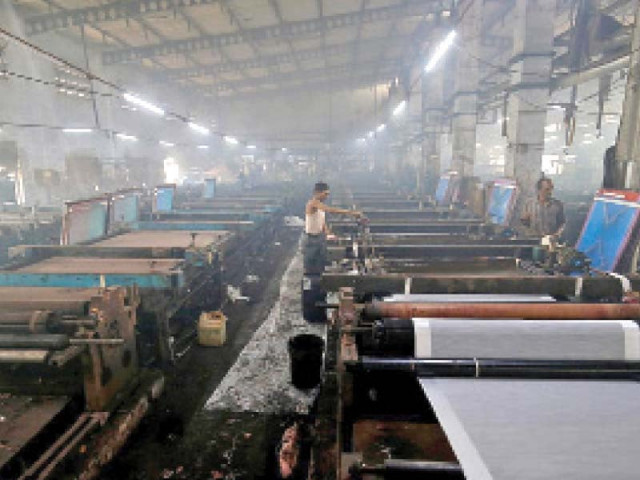Share of textile declines to 45% of exports
Lack of innovation, diversification among reasons for collapse of industry

Amidst ongoing economic recession and population hovering around 230 million, the country direly needs to promote revenue-earning sectors like agriculture and textile industry. As Pakistan is in urgent need of foreign exchange to stabilise its economy, textile promotion and subsequently enhancing exports of agriculture and textile items could help a lot in employment generation as well as socioeconomic uplift of the people.
Once known as the backbone of the national economy, the textile sector of Pakistan in recent decades declined due to multiple reasons, including global and domestic inflation, rise in cost coupled with the inability of industrialists to upgrade their units and produce innovative products. There was a time when Pakistan was the second most dependent country on textile with respect to exports after Bangladesh due to high global demand and availability of raw material in abundance, but these exports witnessed a prominent decline in recent years. The share of textile exports also declined to 45 percent of the total exports of the country from 65 percent.
Industrialists are most of the time making their industrial products "cheap, not unique", thus creating a vacuum where unique and quality products of other countries are making way to the international market. Lack of innovation, product diversification, value addition, low productivity and high cost are also some of the main reasons for the collapse of the textile industry.
"Our industrialists lack innovations, and, in most cases, small power loom owners were using the looms manufactured in 2000," said Engineer Dr Yasir Nawab, dean of the Faculty of School of Engineering and Technology at the National Textile University in Faisalabad. "Exporters here have replenished machinery and started producing and exporting value-added products with some working as vendors for globally known textile brands," he added. He said that the National Textile University Faisalabad (NTUF) had launched a project to facilitate Pakistani industrialists switch over to the knowledge-based textile industry for sustainable enhancement of exports.
"Although, the government is doling out various incentives to promote the export-oriented sector, yet the local sector still remains a prey to inflation, high electricity tariffs and enhanced taxes," Dr Yasir Nawab said.
He said the local industry, which was the mainstay for a vast number of the population, was struggling hard to survive due to reasons like the use of obsolete technology, increase in cotton rate, thread price and labour cost.
Published in The Express Tribune, May 29th, 2023.



















COMMENTS
Comments are moderated and generally will be posted if they are on-topic and not abusive.
For more information, please see our Comments FAQ